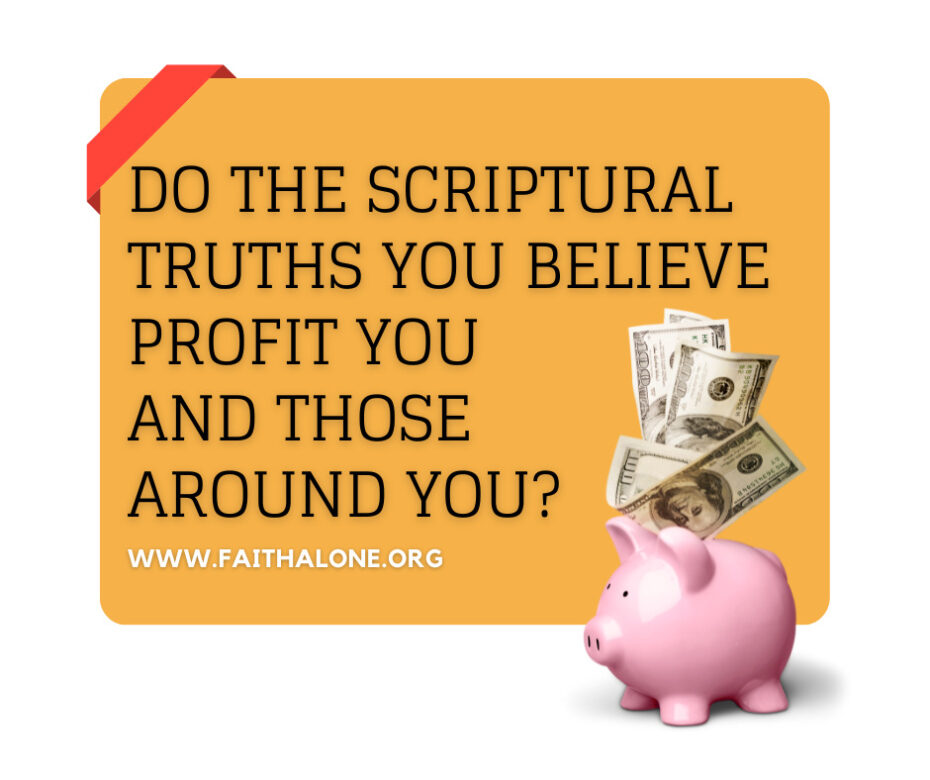James 2:14 begins with the three Greek words ti to ophelos. These three words are found only one other time in the NT. Guess where?
James repeats them two verses later!
These words are translated in four different, but related, ways in the leading English translations:
What does it profit…? (NKJV, MEV, KJV, RSV, ASV).
What good is it…? (NIV, NET, CEV, HCSB, ESV, WEB).
What use is it…? (NASB).
What is the benefit…? (LEB).
These four translations all ask the same question. The only difference is in the word chosen to translate ophelos: profit, good, use, or benefit.
James is asking us to consider what it profits us if we fail to put our faith to work. He is addressing believers: “My brethren.”
Clearly, any believer is potentially someone who says he has faith yet does not have works. If we’re honest, all of us have sometimes been guilty of having faith without works.
Have you ever seen a fellow believer in need, yet failed to help them? I have. Many times.
The need might be financial. Or it could be an illness that makes it hard for the brother or sister to cook, shop for food, or mow their yard. It could be divorce that leaves the children without their dad.
Have you given them money? Taken them a meal? Mowed their yard? Fixed their car? Spent time with their kids? Listened to them? Encouraged them?
In other articles, we’ve explained that the salvation in view in Jas 2:14 is the deliverance of a believer from judgment in this life. See here for a terrific journal article by John Hart and here for a blog by me. The issue is not salvation from eternal condemnation.
But in this brief blog, I want to focus on the main point of Jas 2:14-17: profit or loss.
The reason ti to ophelos is repeated is because James is looking at the profit or loss of two different people: the believer able to help and the believer needing help. If the believer able to help says nice words, but does not actually help, then he doesn’t profit–God does not bless and reward him. And the person in need does not profit either.
The principle here is: Whenever any believer fails to apply what he believes, he doesn’t benefit from his belief. And if he should have been helping a fellow believer in need, but doesn’t, the needy believer doesn’t benefit either. That is the ultimate non-profit religion.
This principle applies to what we believe, about the call to love our spouse, to love our neighbor as ourselves, to give as the Lord prospers us, to pray without ceasing, to work to provide for our families, to share in Christ’s sufferings, to not get drunk with wine, to not forsake the assembling of ourselves together, to encourage one another, etc.
God’s Word is meant to be applied. When we apply it, we benefit and those around us benefit as well. While your church is a non-profit organization, that’s true only in the sense that it is not in business to make money. But it is definitely in the business of producing great spiritual profit in the lives of all its members. God desires our profit in this life and in the life to come. He blesses us when we apply His Word.


